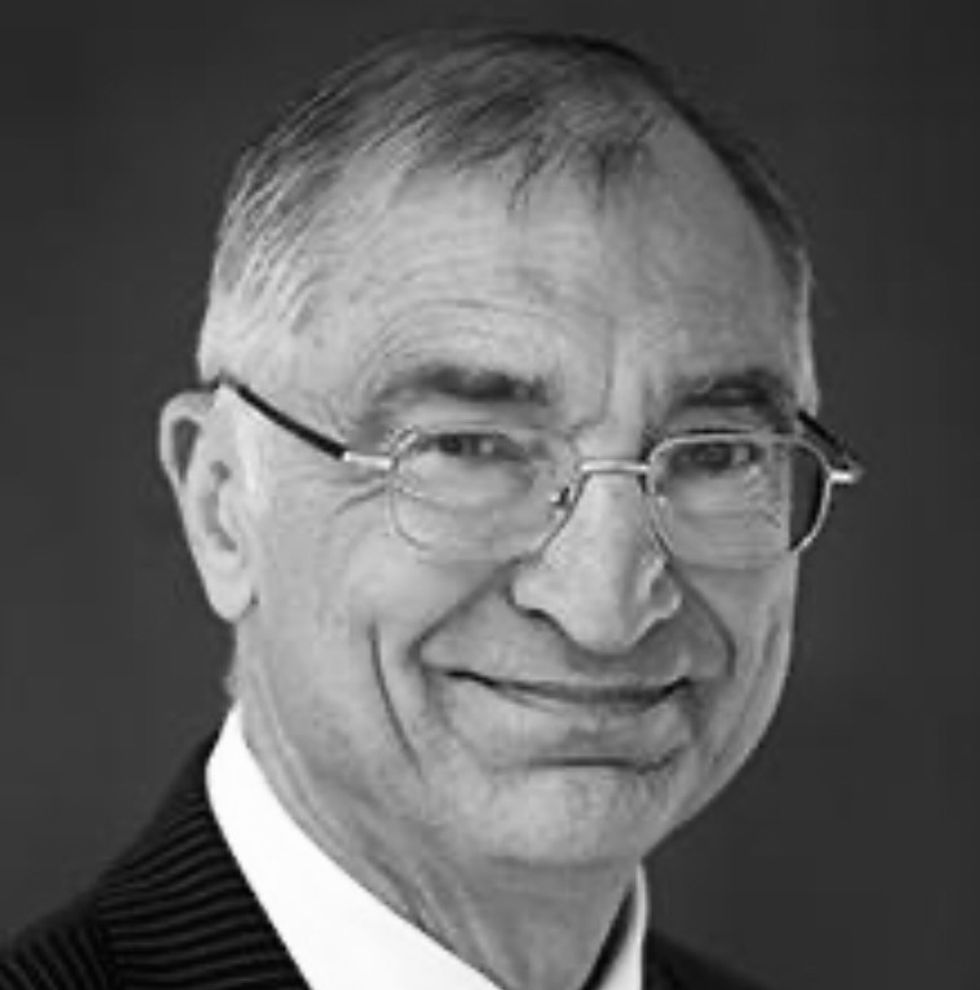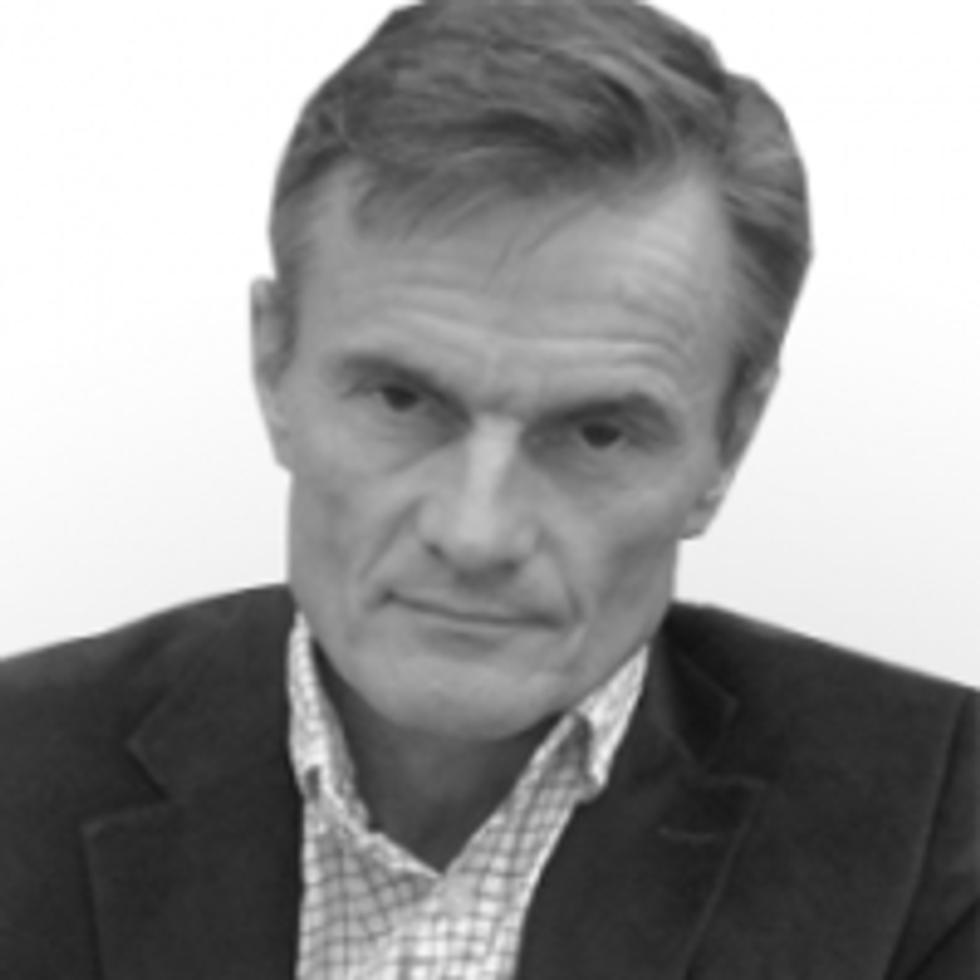EXPERT PERSPECTIVE – Russian officials are warning of a nuclear ‘dirty bomb’ threat as Moscow continues attacking energy and civilian targets in Ukraine. It’s the latest in a series of moves that indicate Moscow is getting bogged down and desperate as the Russian invasion enters its ninth month.
Russian strikes have reportedly destroyed 40 percent of Ukraine’s power grid. Both Ukraine and Russia are also accusing each other of planning to destroy the Nova Kakohvka dam in southern Ukraine, which supplies water to Crimea and the Russian-occupied Zaporizhzhia nuclear power plant.
Earlier this month, Moscow launched missile attacks against multiple Ukrainian cities. On the morning of the missile strikes, Andri Yermak, the Head of Ukraine’s Office of the President told The Cipher Brief Threat Conference that “The Russians can’t defeat us on the battlefield, so they resort to war on a scale unseen since World War Two,” saying, “today, residential buildings all over Ukraine were hit again. People rushing to work in the morning were killed right on the sidewalks or [left] burning in their cars...One of the missiles hit a playground in the capital downtown.”
The attacks came despite Russia’s adamant denial of targeting civilians. Yermak says the Russian intent behind these strikes is to coerce Ukraine into a peace on Moscow’s terms.
“There is no practical military stance in the large-scale attacks of these areas. They wouldn't affect the capabilities of the Ukrainian defense forces. But there is a simple logic behind these actions. Their goal is to deal humanitarian catastrophe in Ukrainian towns and cities. The calculation is two-fold. The first part is to make living conditions too harsh to survive in winter and to provoke another wave of immigration and deplete Ukraine. The second part of the plan is to psychologically break Ukrainians — to make us wish the war ended, no matter how.”
Ukrainian military advances continue in the east and south even as Russia has completed “referenda” and declared annexation of Donetsk, Luhansk, and Kherson. This followed on the heels of Russian President Vladimir Putin’s speech that not only announced a “partial” mobilization of military reservists, but also managed to rattle the nuclear saber once again.
Apart from daily developments, speculation continues to grow about longer-term Russian actions and goals. Setbacks on the battlefield have suggested to some observers that the Russian military may resort to even more desperate tactics on the battlefield.
THE BACKGROUND
- President Vladimir Putin and other Russian officials have threatened use of a nuclear weapon to stem Ukraine’s military momentum. President Vladimir Putin said, “To defend Russia and our people, we doubtlessly will use all weapons resources at our disposal. This is not a bluff.”
- Russian President Vladimir Putin announced in September that he was calling up 300,000 reservists to serve in Ukraine, blaming US and European support for Ukraine for forcing the move.
- Days later, Russia formally annexed four regions in Ukraine in what the West called ‘sham’ elections and a ‘grab for power’
- Kyiv launched a series of successful counteroffensives aimed at taking back regions in eastern and southern territories “annexed” by Russia.
- Russia launches missile attacks on multiple Ukrainian cities and targets Ukraine’s power infrastructure.
- Russian Defense Minister Sergei Shoigu accused Ukraine of planning to detonate a dirty bomb. Shoigu said Ukraine would use the bomb in what’s known as a ‘false flag’ attack that it would blame on Moscow. Ukraine denies the allegation and in turn has accused the Kremlin of launching a similar plan.
The Cipher Brief turned to a range of deeply experienced experts for their perspectives on how they’re thinking about Russia’s struggles and Moscow’s likely next move.
THE EXPERTS
Robert Dannenberg, Former CIA Chief of Central Eurasia Division
Rob Dannenberg served as chief of operations for the Counterterrorism Center, chief of the Central Eurasia Division and chief of the CIA’s Information Operations Center before retiring from the Agency. He served as managing director and head of the Office of Global Security for Goldman Sachs, and director of International Security Affairs at BP and is now an independent consultant and speaker on geopolitical and security risk.
Col. Mark Cancian (Ret.), Senior Advisor, International Security Program, CSIS
Mark Cancian (Colonel, USMCR, ret.) is a senior adviser with the CSIS International Security Program. He joined CSIS in April 2015 from the Office of Management and Budget, where he spent more than seven years as chief of the Force Structure and Investment Division, working on issues such as Department of Defense budget strategy, war funding, and procurement programs, as well as nuclear weapons development and nonproliferation activities in the Department of Energy.
Nick Fishwick, Former Senior Member, British Foreign Office
Nick Fishwick CMG retired in 2012 after nearly thirty years in the British Foreign Service with postings in Lagos, Istanbul and Kabul. His responsibilities in London included director of security and, after returning from Afghanistan in 2007, director for counter-terrorism. His final role was as director general for international operations. Nick Fishwick also spent three years on a secondment to UK Customs, specialising in international drug enforcement and tax evasion issues.
THE PERSPECTIVE
The Cipher Brief: What do you see as the significance of Russia’s “partial” mobilization of reserve forces on the battlefield, and in other respects?
Dannenberg: The Russian partial mobilization is an effort by Putin to address several issues: first, the Russian army does have a manpower problem. The casualties (KIA) in the “Special Military Operation”(SMO) may now total as many as 60,000 as of September. This is according to Russian estimates and the number is much higher if you include the number wounded in action, captured and missing. Analysts estimated the size of the Russian force deployed to attack Ukraine at about 140,000 troops. And the cost of this operation to the combat effectiveness of the Russian army is staggering. Putin needs more soldiers and calls for volunteers and activation of reservists were not producing sufficient numbers. The partial mobilization is not going to solve the problem. Putin is creating cannon fodder.
The second problem the partial mobilization is intended to correct is that of criticism from the Russian hardline right wing who have begun to criticize Putin—however obliquely—for being too soft on Ukraine and fighting the war with “one hand tied around his back.” This conservative community, many of whom as “milbloggers” have covered the war closely and often accurately based on information received from their former colleagues deployed in the military. Their views likely reflect the views of hardline senior officials in the Russian military and intelligence services. Even an autocrat like Putin is obliged to address the concerns of such constituencies.
Lastly, Putin wanted to send a message to the leadership of Ukraine and the West of his resolve to continue the SMO until Russia achieves its stated and inferred objectives. As we have seen, the partial mobilization comes with its own costs. One of which has been widespread protests and Russia’s conscription-age population voting with their feet and leaving Russia. Some estimates suggest as many as 250,000 have done so since the order was issued.
Fishwick: There are some obvious risks in the mobilization. It is clearly not popular. It is causing a corresponding upsurge of "Russia besieged" rhetoric designed to con Russians into thinking they are under attack from the West: 1941 all over again; "la patrie en danger". So, feelings are becoming more volatile. There is a risk that the reservists are incompetent and/or brutal. The critical question for months has been, what signs are there of threats to Putin's position? Western governments will have been focused on this. I hope I am wrong, but I fear not many signs are being seen.
Cancian: I don't think there's any way mobilization will shift the balance on the battlefield. My guess is that's what the generals have told Putin. What I think Putin is trying to do is extend the war into the winter, when he hopes that cold and inflation and high energy prices will push the European governments to demand a ceasefire, an in-place ceasefire. Clearly, they're playing the energy card to try to put Europe under pressure. Polling indicates that the Europeans are, on one hand, very supportive of Ukrainian independence and democracy, but on the other hand, most of them — other than Poland and the Baltic countries — are ambivalent about providing aid and are concerned about getting involved.
The Cipher Brief: What are the military and political implications of Russia’s now-completed referenda and annexation of eastern Ukrainian territories? How do you assess Russian assertions that attacks on these territories are attacks on Russia proper?
Dannenberg: The sham referenda and annexations may have provided the opportunity for Putin to give another tough speech, but it has likely complicated his situation on the world stage. Western solidarity was already strong, these annexations will make it stronger; Ukrainian resolve, already firm, will get stronger. The path toward NATO and EU membership may have been shortened and the annexations do not change the battlefield situation one bit.
Putin has effectively drawn a “red line” that he is not in a position to defend with conventional military power. Russian political-military doctrine allows the use of nuclear weapons when the existence of the state is threatened. It is therefore important to understand the significance of Russia calling Ukraine a “puppet state” of the West and the description of Russia being the victim of economic warfare from the West and fighting NATO in Ukraine. Large numbers of Russians believe this and would believe the use of tactical nuclear weapons in Ukraine to be justified.
Cancian: Although some people around Putin have hinted that the nuclear umbrella would cover the new territories, I don't see that in the statements to date. In his September 21 speech, Putin doesn't indicate that, and he could have. In his September 30 speech on annexation, Putin makes a vague comment about "defending our land with all powers and means available." If a leader is going to threaten nuclear war, he needs to be clear in his threats. The text in the speech is not enough to constitute a change in policy that would dictate the near-term use of nuclear weapons, especially since Ukrainian forces are already pushing into these provinces.
There is an asterisk, though. In the September 21 speech, Putin specifically stated that Crimea was part of Russia. So, it's not impossible that he would argue that Crimea is covered by this umbrella. Now, we'll see how that plays out, because clearly Ukrainians have been attacking targets in Crimea. They're blowing up air bases, and the Russians didn't do anything about it. What the effect will be is unclear.
Fishwick: The "referenda" have happened and Russia has annexed the four regions even if Ukraine is still in control of much of those regions. Ukraine and the West have to treat the referenda as a sick joke and carry on trying to free Ukrainian territory of Russian invaders. How far Putin will go, now that he is claiming that the eastern regions are his and he is defending them, is one of the big questions. Hitherto whenever he has lost, he has increased his stake rather than cut his losses. But the West cannot back down.
Cipher Brief Senior Editor Ken Hughes contributed to this report
Read more expert-driven national security analysis, opinion and perspective in The Cipher Brief
















